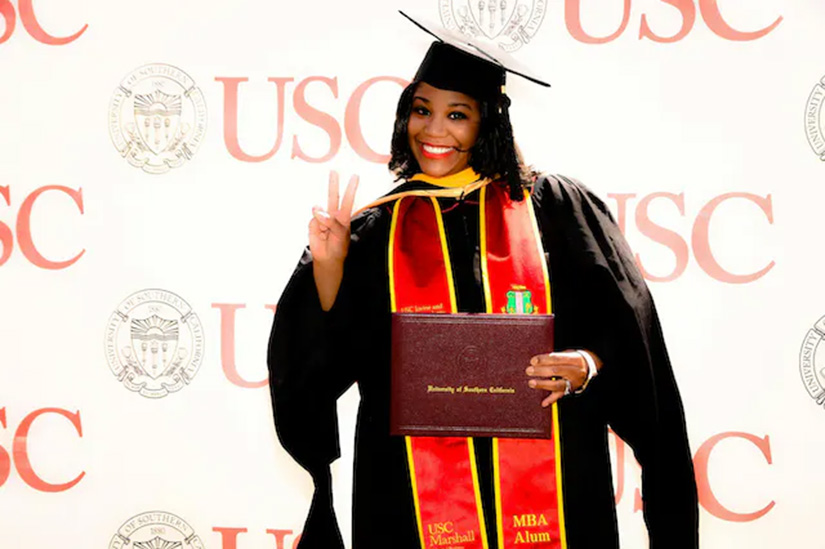“I think in every aspect of my life, it has been about helping folks create their narrative,” Jenean Glover says.
The entrepreneur and USC Iovine and Young Academy alumna has a robust career that spans decades and varied positions, and although she’s had a noteworthy impact on the entertainment industry, she’s still writing her own evolving story.
Glover is the executive director of The Blackhouse Foundation, a nonprofit aimed at cultivating and promoting possibilities for the Black community in entertainment. The organization got its start at The Sundance Film Festival in 2006, designed as a safe and welcoming space where creatives and executives of color could come together to create, connect, and participate in stimulating discussions. Blackhouse’s mission is close to her heart and her personal intent to amplify diverse voices and magnify projects that deserve to be seen and heard. Glover was appointed to the position in 2021. She devotes her time and passion to empowering underrepresented creators and advocating for inclusive storytelling, programming, and representation in top-level leadership.
Glover earned her Master of Science in Integrated Design, Business and Technology in 2020, but when she entered IYA, she had already hit professional milestones that could surpass three lifetimes. After an engineering role at a Silicon Valley startup, she worked her way up from the famed William Morris Endeavor mailroom to become a talent agent in a successful career trajectory that led her to become a business owner of a talent management and content creation firm. Lack of representation was a common thread woven amongst the tapestry of this multifaceted career. She continues to work to change that circumstance today.
“I was always enamored with the [entertainment] business, just like engineering. There weren’t a lot of folks that looked like me. A young African American woman in engineering, there weren’t a lot of us. As an agent, not a lot of Black agents, not a lot of women of color. So I was always in a position where there weren’t a lot of us. The visibility thing was always important,” she explains.
